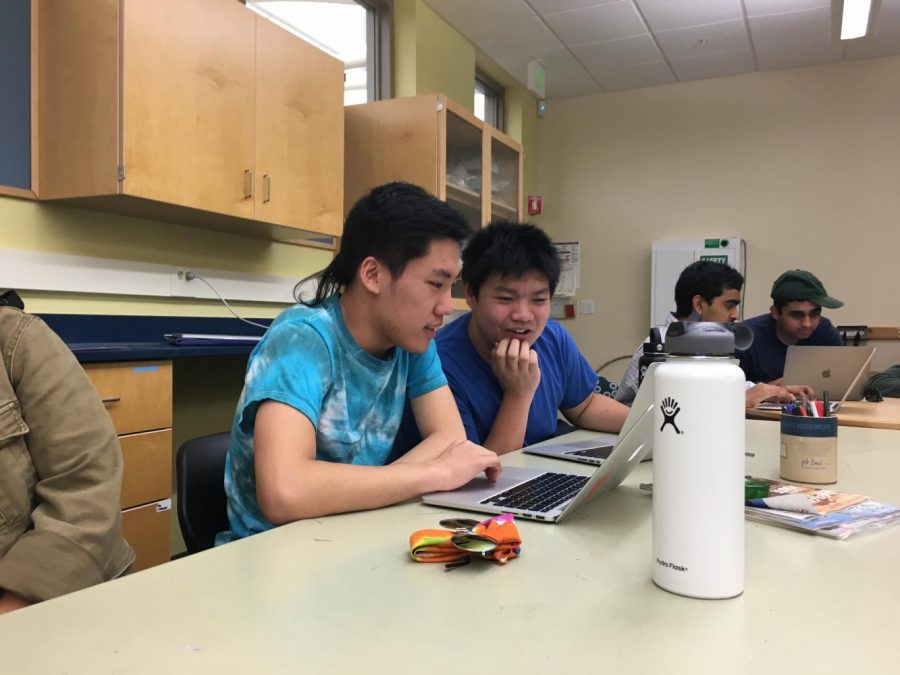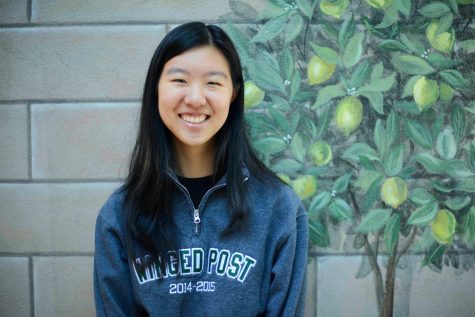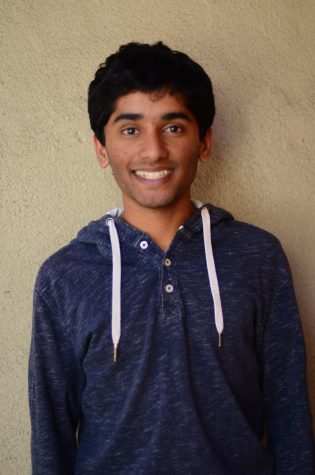Students submit to Siemens Competition
Justin Xie (12) and Michael Kwan (12) work on their research paper during the Advanced Research Class. Students submitting papers to the Siemens Competition had until Sept. 25, a six-day extension from the previous deadline.
October 12, 2017
The Siemens Foundation pushed the deadline for competition entries back to Sept. 25, six days after the original date, in consideration of those affected by Hurricane Harvey and other recent weather phenomena across the U.S.
“Due to recent extreme weather conditions, the deadline for the 2017 Siemens Competition has been extended,” the Siemens Foundation said in a statement released to students on Sept. 15.
The Siemens Competition is an annual science research competition where high school students submit research papers of up to 18 pages in STEM fields. Students who advance to the national level have a chance to win a $100,000 college scholarship.
The extended deadline gave teachers a chance to give more thorough feedback to the students.
“There are students that ordinarily would not have had the time to work on their drafts after the faculty had proofread them,” Science Department Chair Anita Chetty said. “I myself have received drafts from students in the last 24 hours where they have decided to take the opportunity.”
The extra time has enabled students to submit more thought-out and improved entries, also making the process much less stressful.
“I feel pretty good about [the deadline extension],” Alycia Cary (11) said. “It’s given me a lot more time to reflect on my paper and go through more drafts and get a lot more feedback. Hopefully, it pays off in the actual process.”
After submission, professional scientists judge the papers in a series of four rounds, the first determining semifinalists, the second regional finalists, the third national finalists, and the fourth the winner. Nineteen of last year’s 498 semifinalists and three of the 96 regional finalists were Harker students.
Research project topics come from all branches of mathematics, science, and technology, including everything from toxicology to electrical engineering to computer science.
“My project is on using deep learning to automatically detect surgical tools in videos, and using that information to assess operative skill,” Amy Jin (12) said. “Improving surgical training and providing feedback to surgeons will help reduce the rate of complications.”
For now, students wait in anticipation for the competition’s semifinalists and regional finalists to be announced on Oct. 17 and 18.
This piece was originally published in the pages of the Winged Post on October 12, 2017.


















![“[Building nerf blasters] became this outlet of creativity for me that hasn't been matched by anything else. The process [of] making a build complete to your desire is such a painstakingly difficult process, but I've had to learn from [the skills needed from] soldering to proper painting. There's so many different options for everything, if you think about it, it exists. The best part is [that] if it doesn't exist, you can build it yourself," Ishaan Parate said.](https://harkeraquila.com/wp-content/uploads/2022/08/DSC_8149-900x604.jpg)




![“When I came into high school, I was ready to be a follower. But DECA was a game changer for me. It helped me overcome my fear of public speaking, and it's played such a major role in who I've become today. To be able to successfully lead a chapter of 150 students, an officer team and be one of the upperclassmen I once really admired is something I'm [really] proud of,” Anvitha Tummala ('21) said.](https://harkeraquila.com/wp-content/uploads/2021/07/Screen-Shot-2021-07-25-at-9.50.05-AM-900x594.png)







![“I think getting up in the morning and having a sense of purpose [is exciting]. I think without a certain amount of drive, life is kind of obsolete and mundane, and I think having that every single day is what makes each day unique and kind of makes life exciting,” Neymika Jain (12) said.](https://harkeraquila.com/wp-content/uploads/2017/06/Screen-Shot-2017-06-03-at-4.54.16-PM.png)








![“My slogan is ‘slow feet, don’t eat, and I’m hungry.’ You need to run fast to get where you are–you aren't going to get those championships if you aren't fast,” Angel Cervantes (12) said. “I want to do well in school on my tests and in track and win championships for my team. I live by that, [and] I can do that anywhere: in the classroom or on the field.”](https://harkeraquila.com/wp-content/uploads/2018/06/DSC5146-900x601.jpg)
![“[Volleyball has] taught me how to fall correctly, and another thing it taught is that you don’t have to be the best at something to be good at it. If you just hit the ball in a smart way, then it still scores points and you’re good at it. You could be a background player and still make a much bigger impact on the team than you would think,” Anya Gert (’20) said.](https://harkeraquila.com/wp-content/uploads/2020/06/AnnaGert_JinTuan_HoHPhotoEdited-600x900.jpeg)

![“I'm not nearly there yet, but [my confidence has] definitely been getting better since I was pretty shy and timid coming into Harker my freshman year. I know that there's a lot of people that are really confident in what they do, and I really admire them. Everyone's so driven and that has really pushed me to kind of try to find my own place in high school and be more confident,” Alyssa Huang (’20) said.](https://harkeraquila.com/wp-content/uploads/2020/06/AlyssaHuang_EmilyChen_HoHPhoto-900x749.jpeg)








